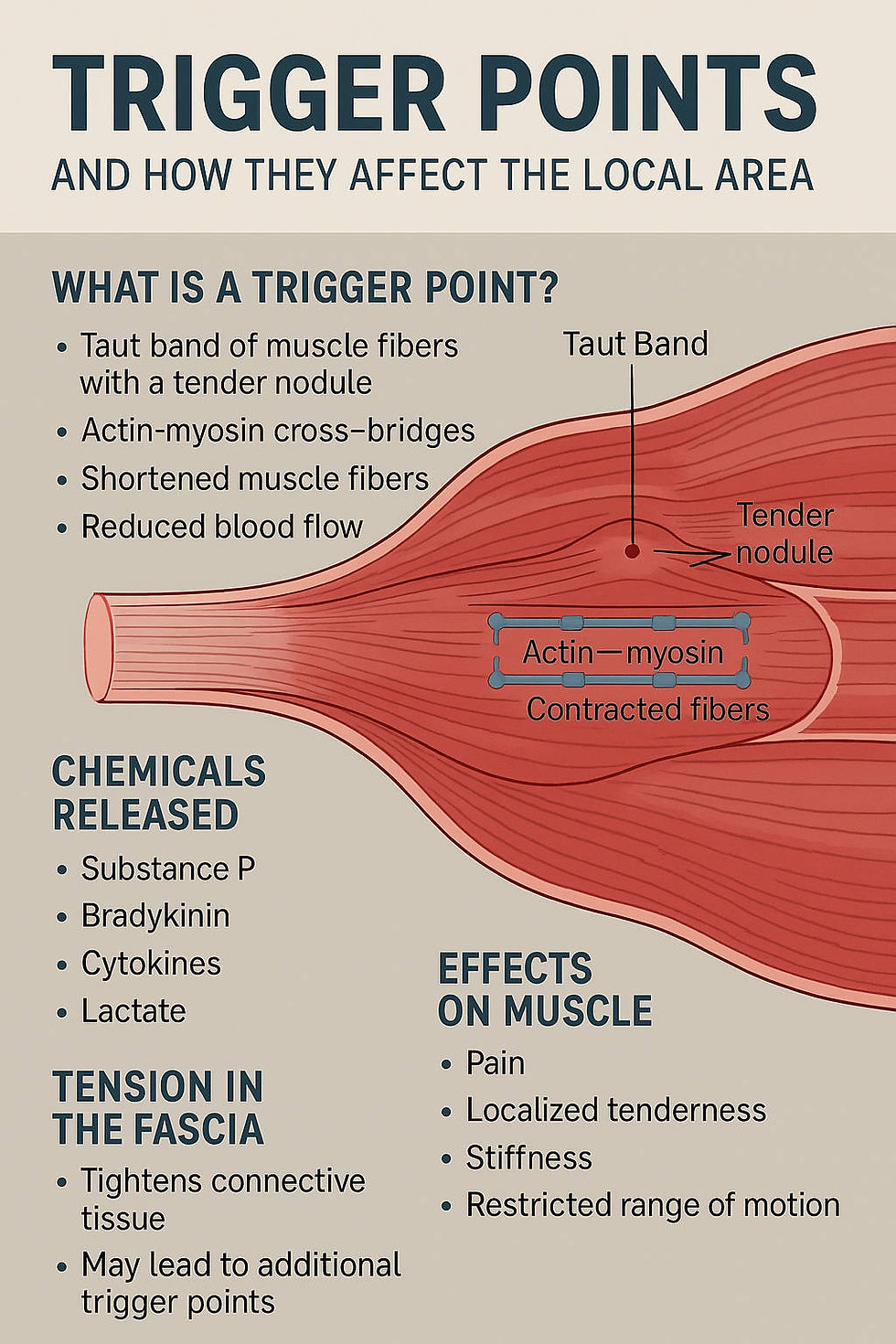Unlocking Emotional Health: How Genetic Testing Can Personalize Anxiety and Depression Support
- Randon Taylor

- May 24, 2025
- 3 min read

Have you ever wondered why some people stay calm under pressure while others feel overwhelmed by the slightest stressor? Or why anxiety, depression, or burnout seem to run in families—even when lifestyles are completely different?
The truth is, your emotional resilience isn’t just shaped by environment or life experience. Your genes play a powerful role, too.
A new form of advanced genetic testing—offered at our clinic—analyzes 30 genes related to emotional health, breaking down your predispositions across 7 core traits that impact mood, motivation, and mental wellness.
The 7 Traits This Panel Explores:
1. Anxiety Propensity – Are you genetically wired for heightened worry or reactivity?
2. Depression Propensity – How does your genetic makeup influence serotonin, dopamine, and mood regulation?
3. Stress Adaptation – Do your stress-response pathways recover easily or stay inflamed?
4. Neuroplasticity & Resilience
5. Sleep Quality & Regulation
6. Focus & Motivation
7. Emotional Processing & Regulation
These insights go far beyond symptom labeling. They empower us to understand the “why” behind your emotional patterns—and more importantly, what to do about them.
Why This Matters
Mental health is not a character flaw. It’s often a biochemical imbalance, compounded by stress, sleep disruption, trauma, and nutrient deficiencies. By uncovering your genetic tendencies, we can create a personalized plan that targets the root contributors to your emotional state—from neurotransmitter imbalances to methylation and inflammation pathways.
This isn’t about destiny—it’s about direction. Your genes are not a sentence; they are a map. And with the right tools, we can shift the terrain.
The Research Behind It
Recent studies back this up:
• A 2022 meta-analysis in Translational Psychiatry found that individuals carrying the short (s) allele of the 5-HTTLPR gene are more susceptible to depression following chronic stress. However, this increased risk was significant only within a year after the stress occurred, suggesting that these individuals are also more capable of recovery over time.
• Another 2023 meta-analysis in Frontiers in Psychiatry confirmed that the BDNF Val66Met polymorphism is associated with increased susceptibility to major depressive disorder in certain populations, highlighting the role of neuroplasticity in emotional health.
These findings echo what we see in practice every day: genetics matter, but lifestyle, nutrients, and supportive care can change outcomes.
What You’ll Receive
When you choose to run this panel through our clinic, you’ll receive:
• A detailed report interpreting your emotional health genes
• A clinical consultation to walk you through what it means
• A custom plan that may include lifestyle adjustments, targeted supplements, and support therapies to help you heal
Hope is in Your Hands
Many patients feel stuck in cycles of anxiety, irritability, sadness, or burnout—unsure if things will ever change. But change is possible, and it starts with clarity. Genetic insight can offer that clarity, showing you which levers to pull for balance, strength, and peace of mind.
If you’ve tried counseling, supplements, or medications but still feel like something is missing—this might be the missing piece.
Let’s stop guessing. Let’s start decoding.
Book your emotional health DNA consult today and take the first step toward understanding and transforming your emotional health.
To learn more or schedule a consult, visit taylormadewellness.org/book-online.
To learn more about all the genetic testing options we offer, including panels for methylation, detox pathways, and nutrient metabolism, visit taylormadewellness.org/post/genetic-testing-personalized-health-idaho.




Comments